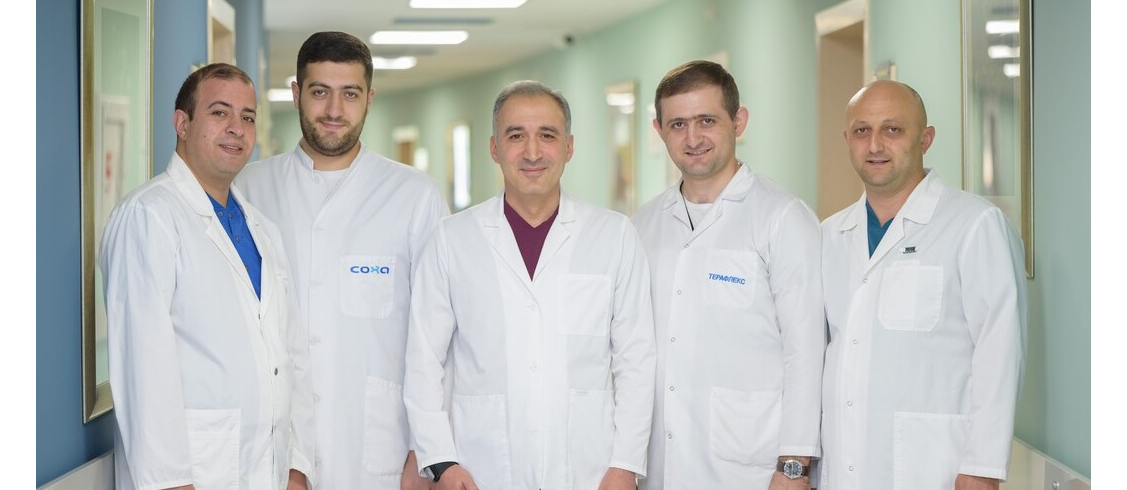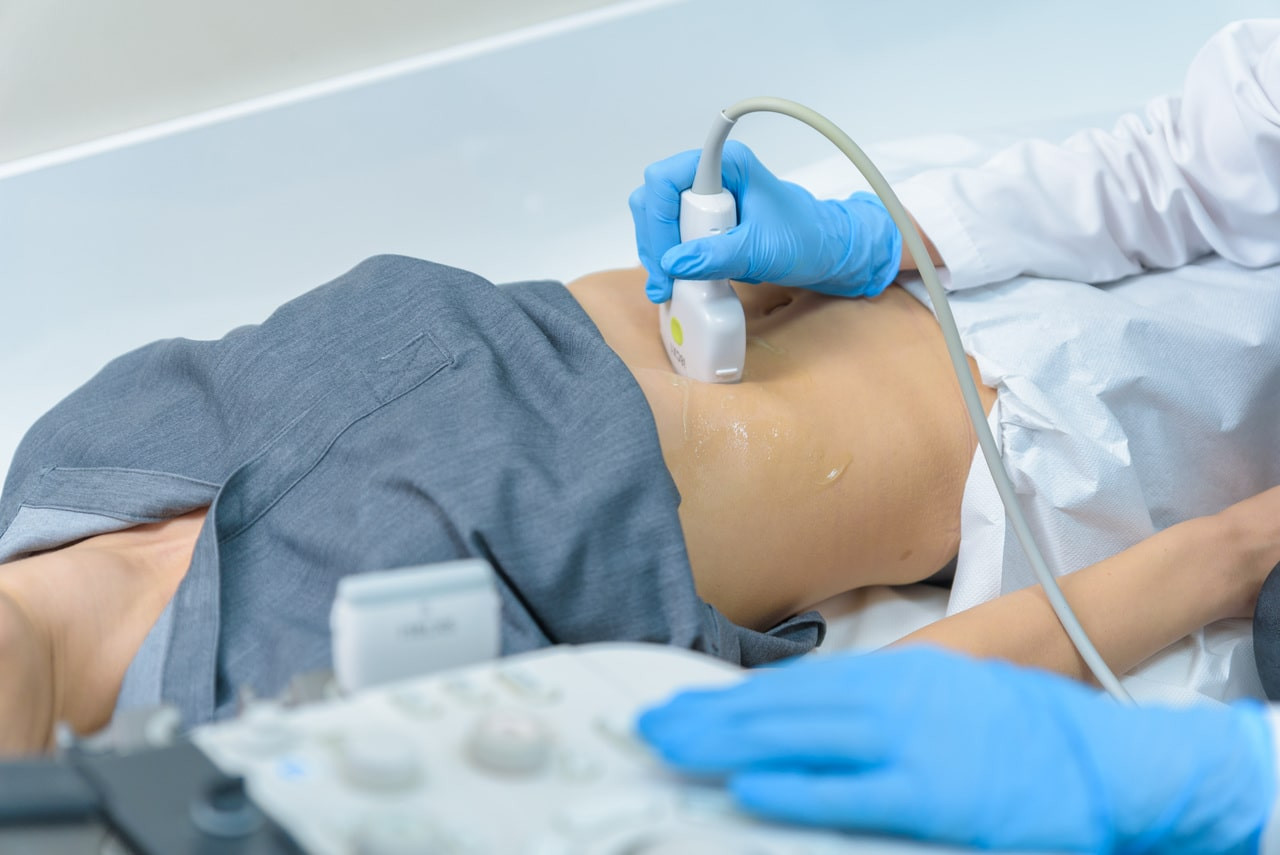Abdominal ultrasound
Abdominal ultrasound
Ultrasound examination of abdominal organs holds a primary place among all diagnostic methods due to its high informativeness, non-invasiveness, and the ability to repeat the examination multiple times in dynamics without harming the patient's health. The high degree of visualization capability of the equipment enhances the ability to detect pathologies and provides a more accurate picture of the microstructure of tissues, which improves the effectiveness of diagnosis and treatment in the early stages of disease development.
List of services
Abdominal computed tomographyAbdominal ultrasound
Brain MRI
Breast Ultrasound
Breast Ultrasound
Bronchoscopy
Cerebral Vessels Ultrasound
Check-ups
Colonoscopy
Computed Tomography
Computed tomography of the chest
Computed tomography of the lungs
CT of paranasal sinuses
CT Scan of the Heart
CT Scan of the Liver
Electroencephalography (EEG)
Electroneuromyography (ENMG)
Endoscopic Diagnosis
Functional diagnostics
Gastroscopy
Head/brain computed tomography
Joint MRI
Kidney CT Scan
Kidney Ultrasound
Laboratory Diagnosis
Liver Ultrasound
Lymph Node Ultrasound (USG)
Magnetic Resonance Imaging
Mammography
Pelvic Ultrasound
Spinal MRI
Thyroid ultrasound
Ultrasound (US) of the Lower Limbs
Ultrasound Diagnostics
Ultrasound during pregnancy
Ultrasound of the brain
Ultrasound of the heart
Ultrasound of the ovaries
Vascular Ultrasound or Duplex Scan
X-Ray Diagnostics
All Services

Learn more about Nairi Medical Center

Why contact us?
All the comfortable conditions are created to solve any problem that a patient may have...
Sign up here for our newsletter







